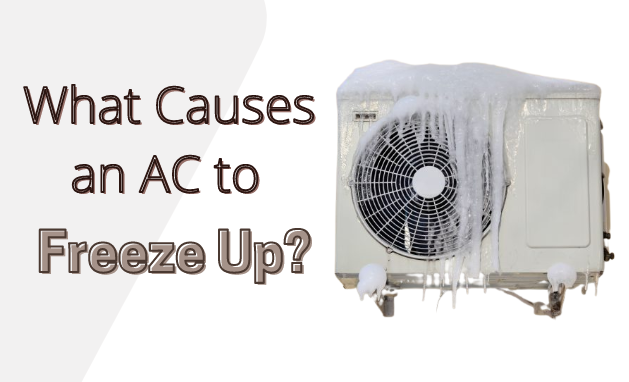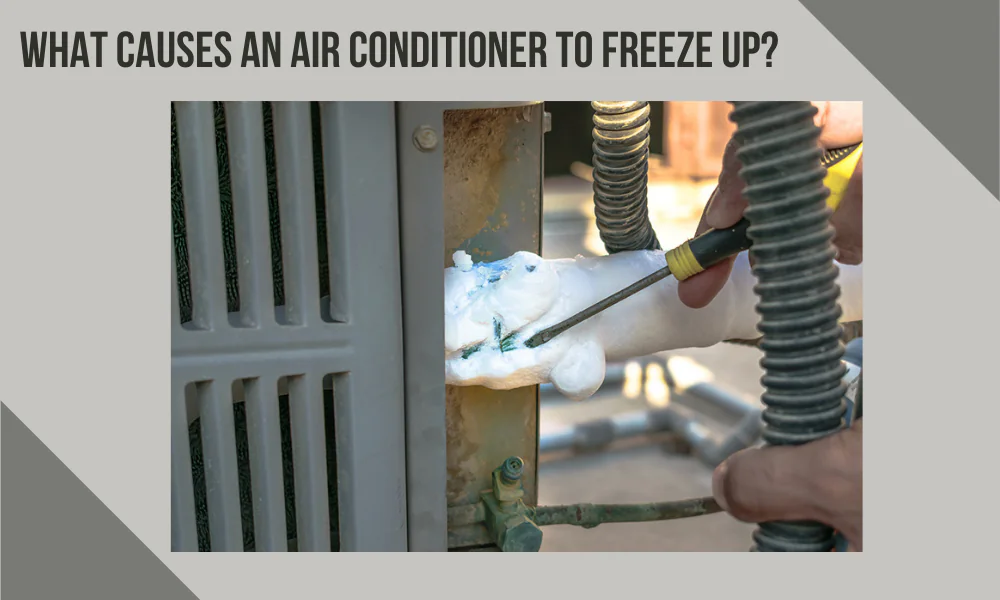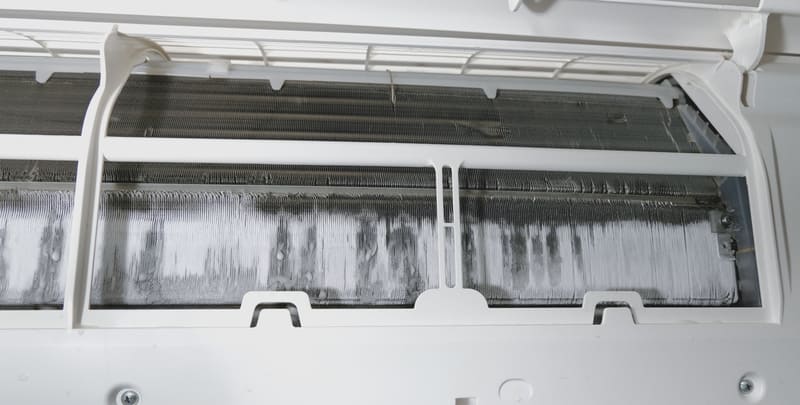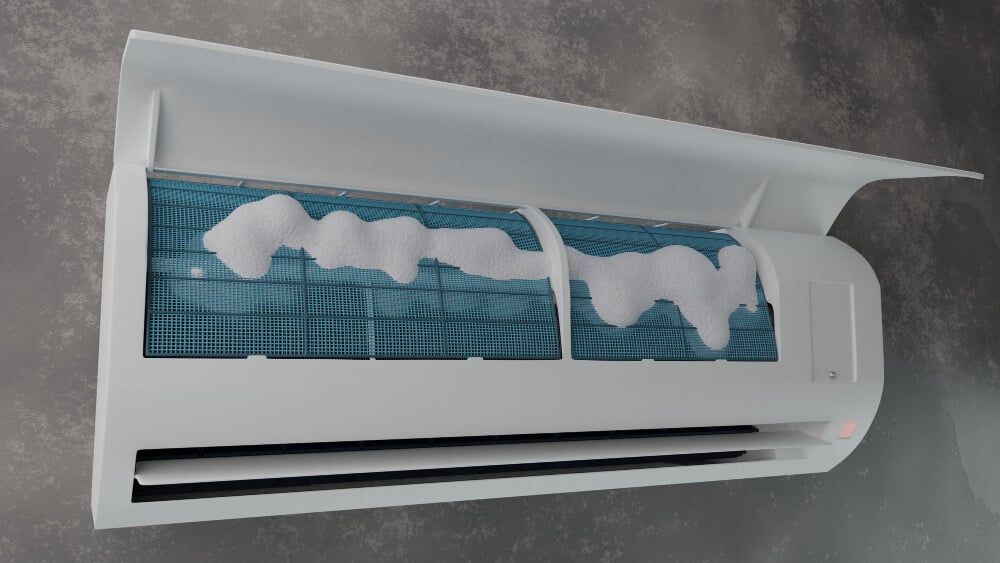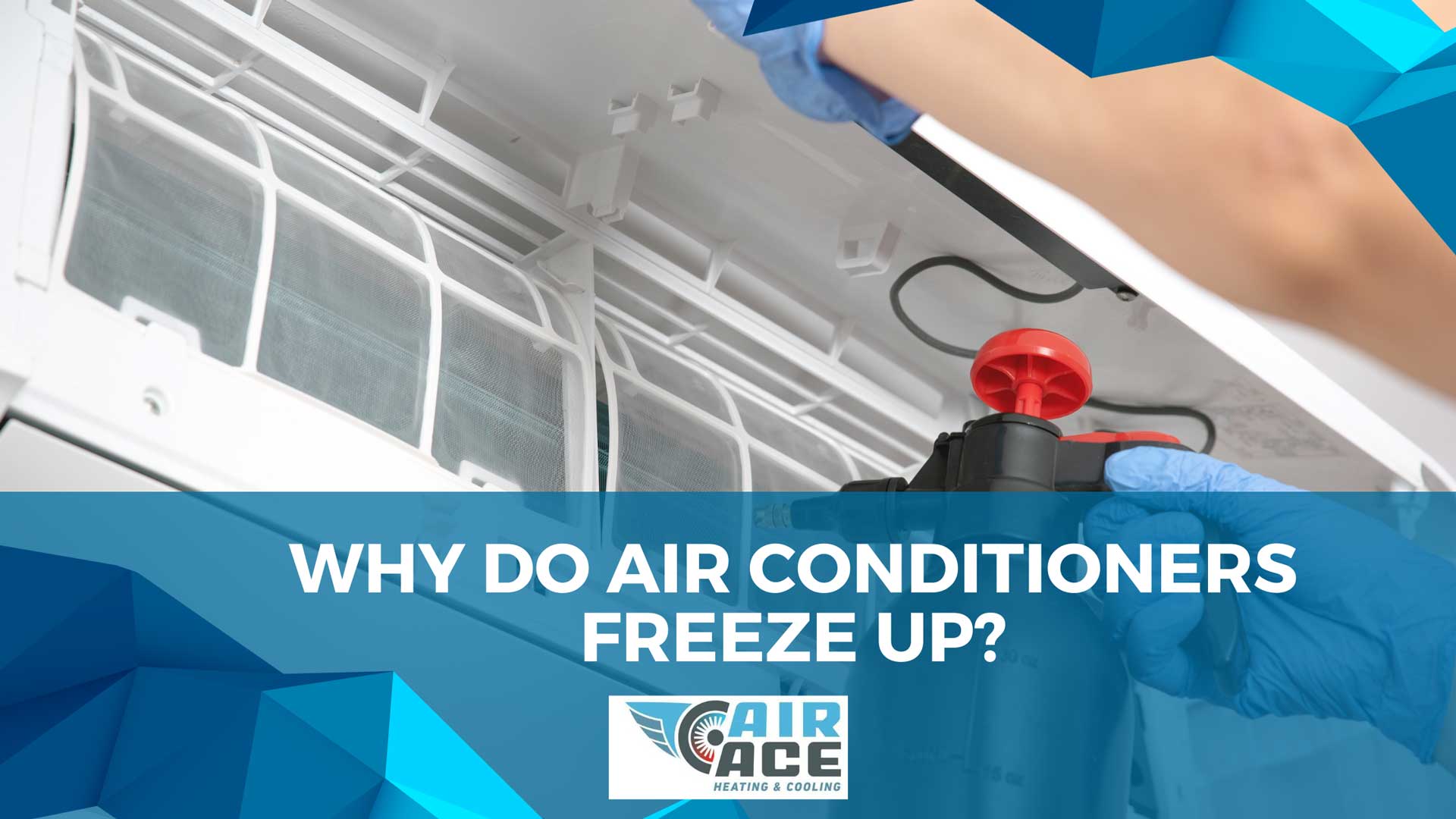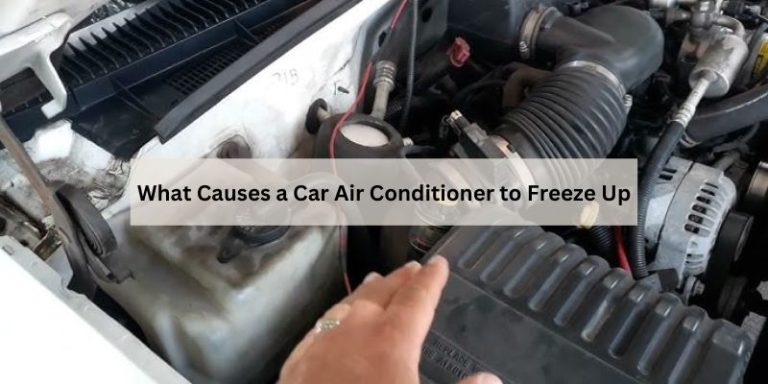What Causes Air Conditioner To Freeze Up
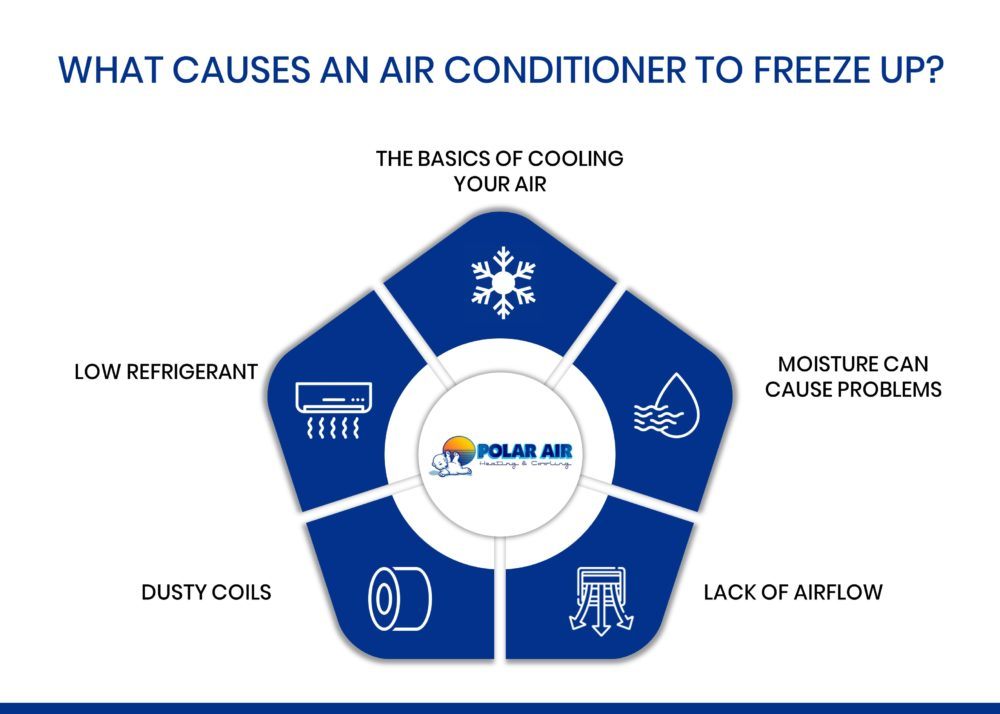
Air Conditioner Freeze-Up: Causes, Prevention, and Career Implications for HVAC Professionals
Air conditioner freeze-up is a common problem that HVAC professionals encounter, and understanding its causes is crucial for effective diagnosis and repair. This article delves into the primary reasons why AC units freeze, offering insights for students, seasoned technicians, and employers within the HVAC industry. We'll also explore the career paths related to AC repair and maintenance, highlighting the importance of certifications and specialized knowledge.
The Science Behind AC Freeze-Up
At its core, an air conditioner works by transferring heat from inside your home to the outside. Refrigerant, the lifeblood of the system, cycles through the evaporator coil (typically located inside the air handler) where it absorbs heat. This process lowers the coil's temperature significantly. If the coil becomes too cold, moisture in the air will condense and freeze on its surface. Over time, this ice accumulation restricts airflow, further reducing the coil's temperature and exacerbating the problem. Understanding this heat transfer process is fundamental for any aspiring HVAC technician. HVAC Technicians earned a median salary of $50,590 in 2021. The job outlook is projected to grow 5 percent from 2021 to 2031.
Common Causes of Air Conditioner Freeze-Up
Several factors can contribute to an air conditioner freezing up. Let's examine the most frequent culprits:
1. Restricted Airflow
Reduced airflow is the most common cause of AC freeze-up. When airflow is limited, the evaporator coil becomes too cold, leading to ice formation.
- Dirty Air Filter: A clogged air filter restricts airflow to the evaporator coil. This is a maintenance task that homeowners can usually handle themselves, but it's a common issue HVAC technicians address during service calls. Regular filter replacement is crucial for maintaining optimal AC performance.
- Blocked Vents: Closed or obstructed supply vents can also restrict airflow. Ensure that vents are open and free from obstructions like furniture or curtains.
- Dirty Evaporator Coil: Dust and debris can accumulate on the evaporator coil over time, hindering airflow and reducing the coil's ability to absorb heat. Professional cleaning of the evaporator coil is essential.
- Damaged Blower Motor: A malfunctioning blower motor can reduce the amount of air circulating across the evaporator coil. This is a more complex issue that requires professional diagnosis and repair.
2. Low Refrigerant Levels
Refrigerant is essential for the cooling process. Low refrigerant levels can cause the evaporator coil to become excessively cold, resulting in ice formation. Refrigerant leaks are a common problem, and addressing them requires specialized knowledge and equipment.
- Refrigerant Leaks: Leaks can occur at various points in the system, including fittings, coils, and valves. Identifying and repairing refrigerant leaks requires specialized tools and training. Technicians must be EPA 608 certified to handle refrigerants legally and safely.
3. Mechanical Issues
Mechanical problems can also lead to AC freeze-up. These issues often require in-depth troubleshooting and repair.
- Faulty Thermostat: A malfunctioning thermostat can cause the AC to run continuously, even when it's not needed. This can overcool the evaporator coil and lead to ice formation.
- Frozen or Clogged Capillary Tube or Expansion Valve: These components regulate the flow of refrigerant. If they become blocked or frozen, it can disrupt the cooling process and cause the evaporator coil to freeze.
4. Low Ambient Temperatures
Running an air conditioner when the outside temperature is too low can also cause the evaporator coil to freeze. Most AC units are not designed to operate efficiently below a certain temperature threshold (typically around 60°F). Some newer units have low ambient kits allowing for colder operation.
Preventing Air Conditioner Freeze-Up
Preventing AC freeze-up involves regular maintenance and proactive measures:
- Regular Air Filter Replacement: Replace air filters every 1-3 months, depending on usage and environmental conditions.
- Professional Maintenance: Schedule annual AC maintenance with a qualified HVAC technician. This includes cleaning the coils, checking refrigerant levels, and inspecting components for wear and tear. NATE certification demonstrates a technician's competence and commitment to quality service.
- Ensure Proper Airflow: Keep vents open and free from obstructions.
- Monitor Refrigerant Levels: Have a technician check refrigerant levels periodically to identify and address leaks promptly.
- Avoid Running AC in Low Temperatures: Do not operate the AC when the outside temperature is below the manufacturer's recommended minimum.
Career Paths in AC Repair and Maintenance
The HVAC industry offers a variety of career paths, from entry-level technician to specialized roles. Here are some examples:
- HVAC Technician: This is the most common entry point into the industry. HVAC technicians install, maintain, and repair heating, ventilation, and air conditioning systems. A high school diploma or GED is typically required, along with vocational training or an apprenticeship.
- HVAC Installer: Installers specialize in the installation of new HVAC systems. They must be proficient in reading blueprints, connecting ductwork, and ensuring proper system operation.
- HVAC Service Technician: Service technicians focus on troubleshooting and repairing existing HVAC systems. They require strong diagnostic skills and a thorough understanding of HVAC principles.
- HVAC Sales Engineer: Sales engineers work with clients to design and sell HVAC systems. They need a strong technical background and excellent communication skills.
- HVAC Project Manager: Project managers oversee the installation and maintenance of HVAC systems for large-scale projects. They are responsible for managing budgets, schedules, and personnel.
The Importance of Certifications
Certifications are essential for career advancement and demonstrate a technician's knowledge and skills. Some key certifications include:
- EPA 608 Certification: Required by the EPA for technicians who handle refrigerants. This certification ensures that technicians understand the proper handling and disposal of refrigerants to protect the environment.
- NATE Certification: The North American Technician Excellence (NATE) certification is a widely recognized credential that demonstrates a technician's competency in HVAC systems. NATE-certified technicians are often preferred by employers and customers.
- HVAC Excellence Certification: HVAC Excellence offers a variety of certifications for different HVAC specialties, including air conditioning, heating, and refrigeration.
Real-World Example: From Apprentice to Master Technician
Consider the career path of Sarah, who started as an HVAC apprentice after completing a vocational program. She worked alongside experienced technicians, learning the fundamentals of AC repair and maintenance. After several years, she obtained her EPA 608 certification and NATE certification. Sarah's dedication and commitment to learning led to her promotion to senior technician and eventually to master technician, where she now leads a team of HVAC professionals. Her expertise is highly valued, and she earns a significantly higher salary than when she started her career.
Salary Expectations in the HVAC Industry
Salaries in the HVAC industry vary depending on experience, certifications, and location. According to the Bureau of Labor Statistics, the median annual wage for HVAC mechanics and installers was $50,590 in May 2021. The lowest 10 percent earned less than $31,910, and the highest 10 percent earned more than $79,830. Experienced technicians with certifications and specialized skills can command higher salaries. Management positions like project manager or sales engineer have considerably higher earning potential.
Conclusion
Understanding the causes of air conditioner freeze-up is a critical skill for HVAC professionals. By mastering diagnostic techniques, staying current with industry best practices, and pursuing relevant certifications, technicians can build successful and rewarding careers in this growing field. For employers, investing in training and certification programs for their employees ensures a skilled workforce capable of providing high-quality service and meeting the evolving demands of the HVAC industry. The key to preventing most freeze-ups is simply performing the regularly scheduled maintenance.
